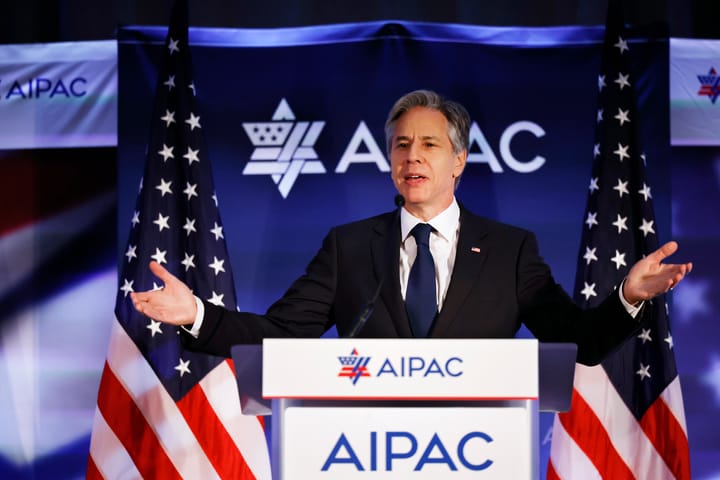If you look up who funds your member of Congress on a website like OpenSecrets.org, there’s a good chance you’ll find a group called Votesane PAC at the top of the donor list. Votesane, a top contributor to dozens of senators and representatives, cultivates an image of itself as a disinterested pass-through for politically engaged citizens to participate in politics. But a review of its donors and advisors reveals that the group functions as a cover for millions of dollars in contributions from the real estate industry.
Votesane describes itself as a non-partisan website where individuals can “read up on all the candidates, get some unbiased news, and then decide on whom to support.” Indeed, its website lets you read bios of politicians, view interest group scores, and submit campaign donations. It has all the trappings of a good-government website: a red and blue color theme suggesting bipartisanship, logos of nonprofit data partners, and copy that extols the virtues of mass political participation.
Sludge reviewed campaign finance records from the Federal Election Commission and found that, far from helping a diverse group of people engage in politics, Votesane funnels contributions from individuals nearly exclusively from the real estate industry, and it primarily contributes to centrist politicians—a mix of Democrats and Republicans known for their moderate positions on economic issues, many of whom are in positions to influence legislation on issues affecting the real estate industry. What’s more, the organization is run by lobbyists who work to influence these same members of Congress on behalf of real estate and finance industry clients.
Of the more than $5 million Votesane raised in the 2018 election cycle, nearly $450,000 came from individuals affiliated with real estate company Re/Max; more than $300,000 came from individuals affiliated with Keller Williams; and $165,000 came from individuals affiliated with multinational conglomerate Berkshire Hathaway, which owns a residential real estate services company. Sludge reviewed the more than 9,400 donors to Votesane in the 2018 cycle and found just a handful who did not disclose being employed by companies in the real estate industry.
Like typical corporate or interest group PACs, Votesane PAC’s funding does not come directly from real estate companies—it’s illegal for PACs to take money from corporate or labor union treasuries—but from individuals employed by those companies. But the way Votesane operates gives it a distinct advantage over most other PACs. Because it is a conduit and allows its donors to specify which candidates they would like their money to support, Votesane can give unlimited amounts of money to political campaigns. The PACs of companies like Berkshire Hathaway and Re/Max can only give a maximum of $10,000 per candidate each two-year cycle.
Further, the real estate connection is obscured by the Votesane name and brand. In FEC data and on money tracking websites like OpenSecrets, the contributor for these funds is listed as Votesane PAC, and Votesane’s website does not indicate that it functions almost exclusively as a conduit for political contributions from the real estate industry. Only when you download the donor file .csv from the FEC and analyze the reported employers does the real estate industry connection become clear.
Votesane’s founder, Rob Zimmer, told Sludge that the site partners with organizations, allowing them to direct individuals who may otherwise donate to their PAC—their “restricted class” in FEC parlance—to earmark their contribution for politicians that appear on a list of candidates selected by the organization. “A conduit PAC means that one can list some candidates and say to the restricted class, ‘pick the ones that you want to donate to,’ and that is all done by FEC rules, and we are talking to organizations about using us as a backend.” Zimmer declined to identify the organizations Votesane works with in this fashion.
To public-interest watchdogs, Votesane is an example of how special interests and lobbying groups can covertly give campaign money to politicians.
“It shows how easy it is to Trojan Horse past ‘no corporate lobbyist’ or ‘corporate PAC’ pledges—have corporate lobbyists brand themselves as centrists and give the money under that guise, even as the right staffer and/or member of Congress knows precisely to whom they owe a reciprocating favor,” Jeff Hauser, executive director of the Revolving Door Project at the Center for Economic and Policy Research, told Sludge.
Run by Lobbyists
Votesane was founded in 2010 by Rob Zimmer, who is described in his Votesane bio as “a longtime financial services executive with significant political and technology industry experience.” What the bio does not mention is that Zimmer is a registered lobbyist who works to further the interests of real estate and financial services organizations before Congress, sometimes lobbying the same members who receive contributions from Votesane. Zimmer has earned more than $2 million from lobbying for these industries since 2010.
According to his LinkedIn profile, Zimmer is currently head of external affairs for the Community Mortgage Lenders of America. His current responsibilities for the trade group include “Washington lobbying, regulatory affairs, media relations, and trade peer relations.” In 2018 Zimmer was paid $63,000 in 2018 to lobby Congress for the Community Mortgage Lenders of America on a range of real estate and mortgage issues, including Federal Housing Administration pricing, Veterans Affairs lending, small lender reg relief generally, and Loan Officer Transitional Licensing (Safe Act).
Zimmer told Sludge that he has lobbied recipients of Votesane PAC money. “There is no question that I have walked into some offices while lobbying for my small lenders where those offices have in fact received funds through the Votesane marketplace,” Zimmer said. “The vast majority of the offices frankly have no idea that I’m part of Votesane, and if I told them I’m not sure they’d care because I have no ability to steer money through Votesane to these offices.”
As a conduit PAC, Votesane’s founder and advisors do not directly decide which politicians receive donations made through the site. But by partnering with undisclosed organizations that restrict the list of candidates their donors can give to, Votesane and their partners have a strong influence over where their donors’ contributions go.
In 2018, Zimmer also worked as a lobbyist for the Mortgage Research Center, ClearCapital, and the Multifamily Lenders Council. For the Mortgage Research Center, Zimmer’s lobbying focuses on veterans’ housing issues, For the Multifamily Lenders Council, he focuses on the low-income housing tax credit program, general multi-family housing issues, and Davis Bacon rules that make MF housing non-economic. And for ClearCapital, his 2018 lobbying focus was real estate valuation issues for residential mortgages.
“Current lobbying and campaign finance rules can create the appearance of greater transparency than they actually provide,” Hauser said. “Under current law, Zimmer can follow up a lobbying visit on behalf of a client with an increase in Votesane support for that member and the media and nonprofits would be hard-pressed to connect the dots, as neither the client nor Zimmer himself would have been the disclosed source of any funds. We need laws that expand fundraising transparency to account for the different hats Zimmer and other influence peddlers can and do wear.”
Zimmer isn’t the only lobbyist running Votesane. Advisory board member John Feehery is currently a lobbyist with EFB Advocacy, a D.C. firm whose website say it offers its corporate clients senior counsel and combines “cutting-edge digital technology with powerful storytelling capabilities to complement traditional lobbying and offer maximum results for our clients.” Feehery lobbied for EFB clients from a range of industries in 2018, including AmerisourceBergen, Master Limited Partnership Association, National Association of Broadcasters, and SoftBank.
Jeffrey MacKinnon, a Votesane advisor, is currently a lobbyist with Farragut Partners, where he represents a long list of corporate clients, including Comcast, Johnson & Johnson, Southern Company, and AstraZeneca. Before joining Farragut in 2016, MacKinnon was a principal with Ryan, MacKinnon, Vasapoli and Berzok, where he also represented a long list of corporate clients from the pharmaceuticals, telecommunications, and energy industries.
Votesane advisor Jimmy Williams, who is currently Executive Director of the Blue Nation Review, was formerly a lobbyist for Carl Icahn, the National Association of Realtors, and the alcohol industry.
Votesane treasurer Paul Equale operates a D.C. public affairs firm, Equale & Associates. According to Equale’s bio, he “counsels a diverse client base that includes Fortune 50 corporations, trade associations, investment funds, and individuals in the financial services, entertainment, technology, energy, health care and legal sectors. Among the clients Mr. Equale has counseled are the CEO, board and executive committee of one of the largest mortgage finance companies in the United States.”
Contributions to Members Overseeing Housing Issues
Many of the top recipients of Votesane contributions lead committees or are in other powerful positions where they have outsize influence on housing and real estate issues, and other issues on which Votesane advisors lobby.
According to the Center for Responsive Politics, Votesane’s contributions went disproportionately to members serving on the congressional committees with primary jurisdiction over housing and finance issues. In 2018, Votesane contributed to 23 members of the House Financial Services Committee, more than to any other House committee, for an average of $43,911, a higher average total than to the members of any other committee. The Financial Services Committee “oversees all components of the nation’s housing and financial services sectors including banking, insurance, real estate, public and assisted housing, and securities” according to its website.
On the Senate side, Votesane gave an average of $71,421 to the members of the Senate Banking Committee in the 2018 cycle, a higher average than to any other committee. The Banking Committee has jurisdiction over the banking system as well as public and private housing.
Rep. Richard Neal (D-Mass.) received $92,750 from Votesane PAC in the 2018 election cycle, more than from any other organization. Neal is chairman of the powerful House Ways and Means Committee, which oversees tax policy, including the real estate industry’s sacred cow: the mortgage interest tax deduction, allowing homeowners to deduct the interest they pay on first and second mortgages from their taxes.
Sen. Tim Scott (R-S.C.) received $138,000 from Votesane PAC in the 2018 cycle. Scott is the chairman of the Senate Banking Committee’s Financial Institutions and Consumer Protection subcommittee, which has jurisdiction over many housing and mortgage banking issues, including the federal home loan banking system, banks, savings associations, credit unions, and other financial institutions, including those that issue mortgages.
Sen. Sherrod Brown (D-Ohio) is the ranking member on the Senate Banking, Housing, and Urban Affairs Committee, which has jurisdiction over the banking system as well as public and private housing. Brown received $118,526 from Votesane in the 2018 election. Bills on the affordable housing crisis, amending the Fair Housing Act, mortgage lender disclosure rules, and other issues get referred to the Banking Committee. As the committee’s top Democrat, Brown plays a leading role in determining his party’s position on these bills.
Sen. Johnny Isakson (R-Ga.) is Chairman of the Senate Veteran Affair Committee, which oversees the Veterans Affairs Department lending program and veterans’ housing issues that Zimmer reported lobbying on for his real estate clients. Isakson received $181,700 from Votesane in 2016, his most recent re-election cycle.
Related:


